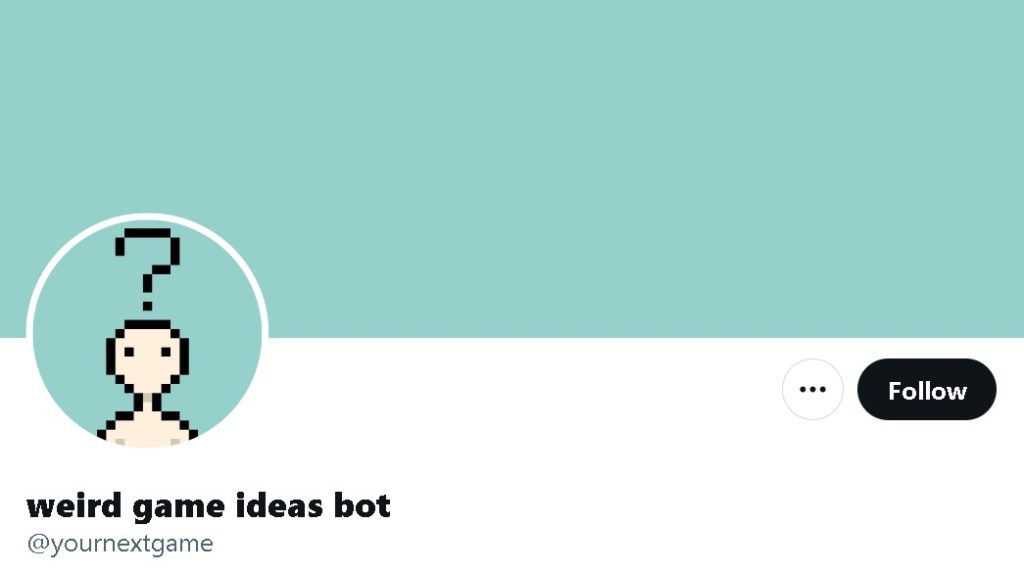
How Students Are Making Games Based Off The Weird Game Ideas Bot
There’s a lot of bots in our lives. People mostly think of them as malicious actors—like the bots scalpers release en masse on retail sites to scoop up products, or the frustrating chatbots deployed by big companies to “help” customers. But some are unexpectedly generative and friendly. The anime girl bot in a Discord server I’m part of counts as one (shout out to our girl Miki), and so does the Weird Game Ideas Bot (@yournextgame) made by athenahollow and failnaut.
When you scroll through the account, you’ll see randomly generated video game ideas of all sizes and shapes, like “noir management sim about disloyal verified Twitter users” or “fairytale Call of Duty demake about drunken sentient trees.” It’s fun to think of what these games—fever-dream mashups of genre, subject, and delightful absurdities—would look like if they were manifested. Juno Morrow, indie game dev and professor at Hostos Community College, assigned her students to the task.
noir management sim about disloyal verified twitter users #gameidea #gamedev
— weird game ideas bot (@yournextgame) April 20, 2022
For a final project in a game coding class, Morrow borrowed the chaotic power of the Weird Game Ideas Bot and instructed her students to create their own game off of a selected prompt from the account. Morrow first came up with the idea for practical reasons. She wanted to create a final project that would get students thinking outside the mold instead of imitating Unity tutorials.
“In [the class], I had this problem where for the final project, it was kind of open-ended as far as what students wanted to do,” Morrow said in an interview. “It was going to be a project in Unity. [For the most part], there would be very generic, cliché things [made] based on whatever tutorials were available. And so, I wanted to steer the projects in a direction that would be unique and interesting. And where [students] wouldn’t just find a tutorial that tells them exactly how to do something specific to make a clone game of something else.”
To use a metaphor, think of the Weird Game Ideas Bot project like first giving students the conceptual shape of a car and then asking them to figure out the engineering, interior, function, and more. In the end, they’d hopefully construct a cohesive, recognizable moving vehicle as opposed to “a toaster duct-taped to the top of the car” or “forcing things the way they shouldn’t work,” Morrow said.
fairytale call of duty demake about drunken sentient trees #gameidea #gamedev
— weird game ideas bot (@yournextgame) April 19, 2022
Elaborating on what she hoped students will take away from the assignment, Morrow said, “I think there’s often, especially in some code classes, these misconceptions about how to solve problems in game development–where they’re always looking for a specific tutorial to teach them how to do a very specific action in a game. Like ‘how do I script raising the character’s arm with the gun in the hand and then firing above, rather than thinking about breaking it down into individual elements and approaching it like that.”
Morrow hoped that through the Weird Game Ideas Bot assignment that students would “be able to really think through what the component pieces are in the part of the problem they’re trying to solve, instead of just going for trying to mix and match a bunch of tutorials they end up getting in trouble with because they don’t necessarily understand all the elements that they’re trying to piece together to make this hybrid of two different tutorials or something.”
Resourcefulness certainly was the name of the game, according to past students who made games off of bot prompts. The handful of students I spoke to were initially unsure what to do with their received prompts. Morrow’s past student, Jay Chaparro—”your average guy who loves everything about games,” and current theater student at CCNY—said, “[My prompt] was something like ‘A dating game about zealous programmers’ or something along those lines. Was I immediately drawn to it? Excuse my language but, fuck no. I didn’t even know what zealous meant when I got the prompt, and a dating game? I have as much experience with dating as I have height, and I don’t have a lot of that…”
Shany Perez, a solo dev who is also currently pursuing a Comp Sci degree, shared similar sentiments. “My prompt was ‘arcade construction sim about talkative screenwriters.’ The reason why I chose this prompt is simply because I thought, ‘If this already sounds complicated, then other ones are probably going to be worse,” he said
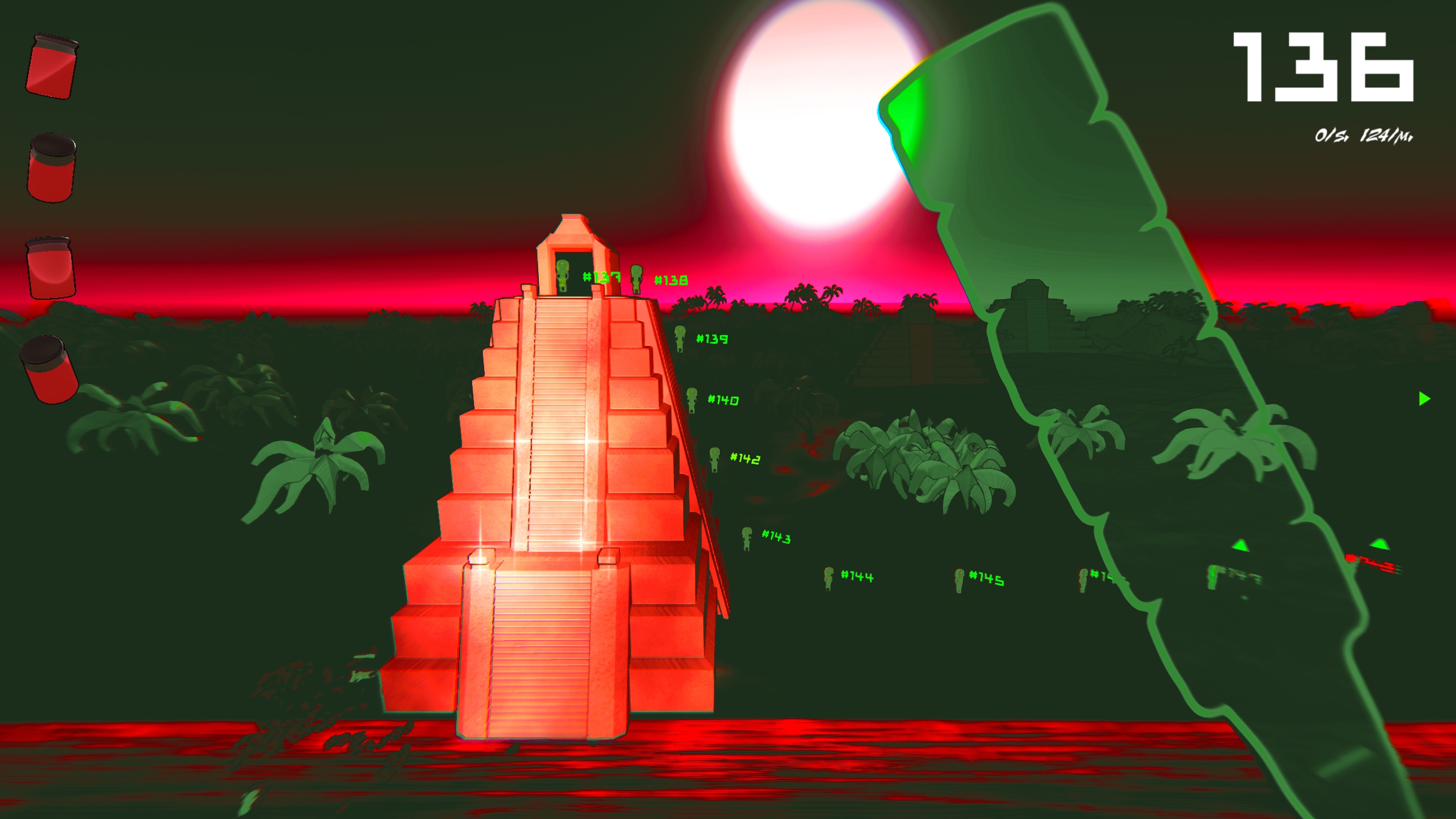
Others had less chaotic reasons for choosing their prompts. Zachari Daichi John, a former student that took Morrow’s class in 2018 and is a UI/UX designer now, said, “I picked a cyberpunk shopper simulator kind of thing. Like I’m shopping for somebody, but in a cyberpunk-ruled word.”As for why John gravitated towards their prompt, it’s because they hoped to try something new. “I selected that one because it was kind of different. I got bored of the usual platformer games, like jumping around and collecting stars,” John commented. “I felt like—even though my game ended up becoming a jumping-around-kind-of-game—it still felt better than making a typical platformer. I decided to go for a 2D side-scroller vibe.”
John, Perez, and Chaparro all eventually creatively turned their prompts into fully realized games. In a liberal interpretation of their prompt, John made the player a fugitive set in a cyberpunk world and turned the shopping element into gathering materials. While the game currently doesn’t run, John’s game ended up as a pixel, side-scrolling game with platform elements.
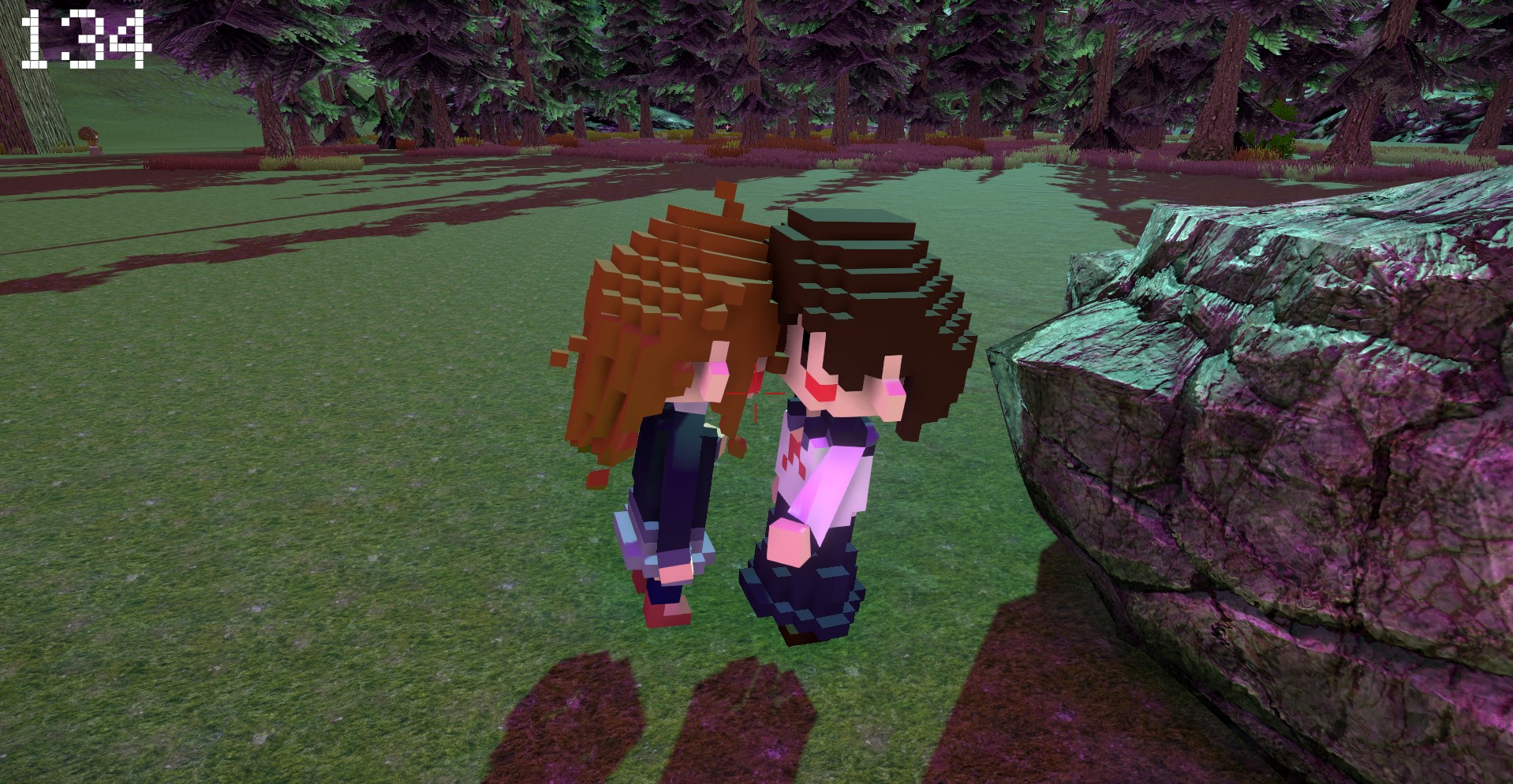
Perez reframed the prompt from an arcade game to a game about constructing arcades. And Chaparro took his prompt very literally and made a Programmer Dater game where the player needed to throw programmers at each other in order to create couples. It’s like a dating sim, but one where it’s very humorously abrupt. Speaking more on the process, Chaparro didn’t expect the game to end up where it eventually did.
“The experience making the game was like chipotle for me,” Chaparro said. “At first I just threw in whatever I had in it and it didn’t mix well, but as I went along I started picking the things I liked and taking out the things I didn’t like as much until I had my perfect bowl. From where the game started to the finished product was night and day, it had changed so much I didn’t even recognize my first concept looking back. I think the most memorable part was how the game changed throughout the creation process.”
While Morrow was unsure if the Weird Game Idea Bot assignment changed her students’ game development process going forward, all three students said it did affect how they went about bringing a game into fruition.
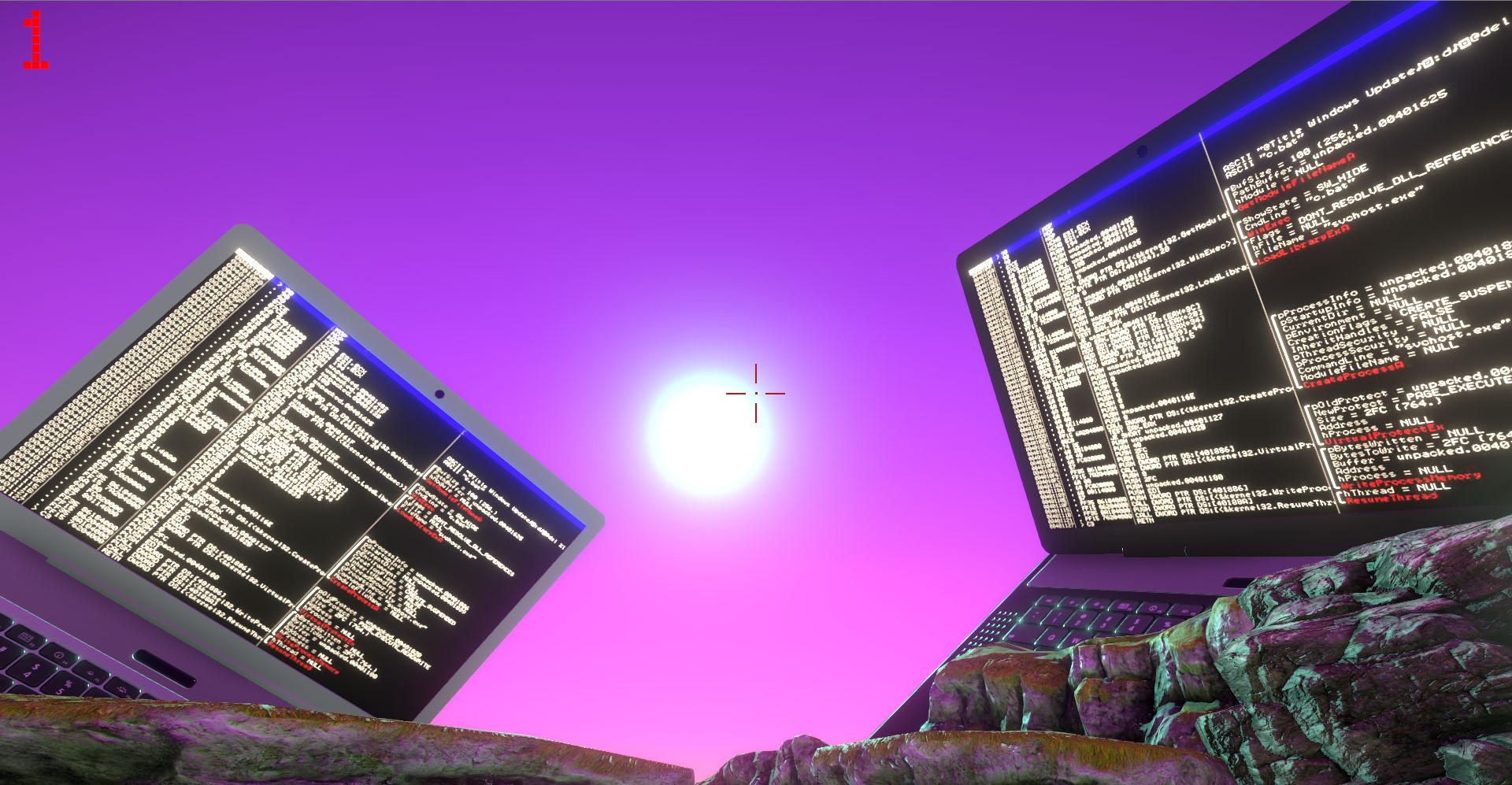
“One thing that we do often as programmers is that we go with what we already know or what has already been established, which isn’t a bad thing for consistency, but can be for creativity and uniqueness. Many times I was given an assignment or was just making something for fun and always ended up looking at what I was making and thinking: ‘This feels like X or plays like Y,” Chaparro said. “The Weird Ideas Bot essentially made it so that I [try to] break out of habits as much as I can. The final result, [Programmer Dater] was a janky mess that could use a lot of improvement, but it was still something I hadn’t tried before, something fresh in my eyes. Now whenever I approach game development I try to throw random things on the wall and see what sticks.”
Perez also said that he now tries to deconstruct and rearrange ideas to see how they could unexpectedly become more engaging. “I tend to apply it to already existing games to help me come up with interesting concepts,” he said. For John, they now have a different relationship with 2D games. Prior to the Weird Game Ideas Bot assignment, they only made 3D games and the personal shopper game was their first 2D game. “I wouldn’t say [making 2D games is] easier, but I can flesh [them] out and make it high-fidelity versus a 3D game with mid-fidelity—and I would have more fun with it. I would have a better engagement with it.”
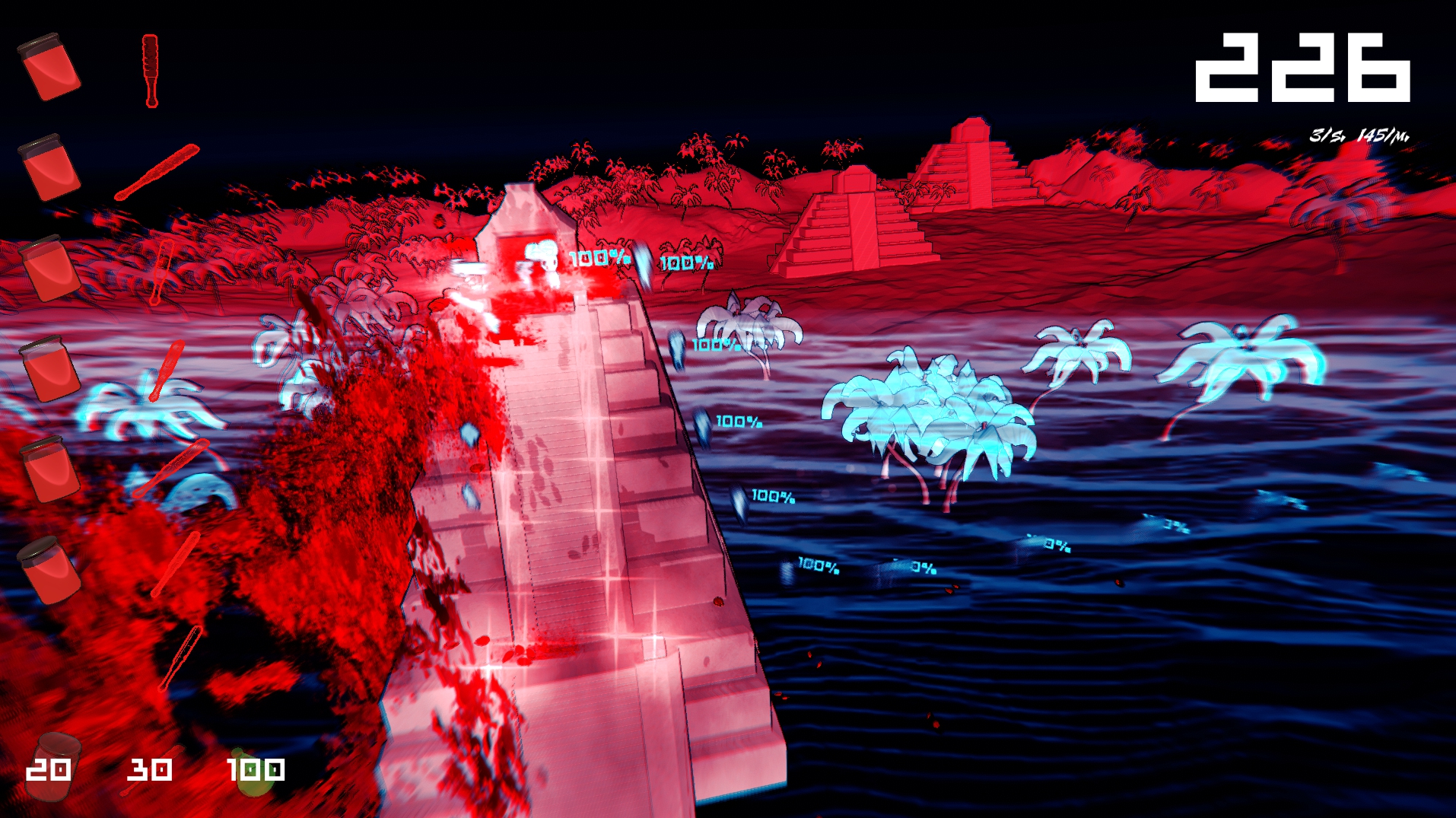
Morrow herself made a game based on a Weird Game Idea Bot prompt too. Inspired by “cookie clicker-like game about nefarious demigods,” Blood Broker asks players to manage human sacrifices to the gods. The gods prefer only willing sacrifices, however, so it’s your job to convince people to offer themselves up. Too many unwilling sacrifices will anger the gods, as well as cause a decrease in morale among the rest of the population. Frenetic and fast-paced, Blood Broker is like a middle management job, albeit one that’s a little more violent than the typical desk gig. When I play it, it’s a surprisingly therapeutic and soothing experience; the colors, the shaking graphics, and time limits press the right little serotonin buttons in my head. Both conceptual and absurd, Blood Broker feels like a technicolor trance.
The student’s game that came from the same prompt as Blood Broker was very different–which is a fascinating part of the assignment. Ask 30 people to make a game off of the “cookie clicker-like game about nefarious demigods,” and they’d probably come up with 30 completely different games.. A
It’s this flexibility and absurdity to the assignment that ties the Weird Game Ideas Bot assignment to Morrow’s larger game development education ethos of trying to teach students how to think about building games.
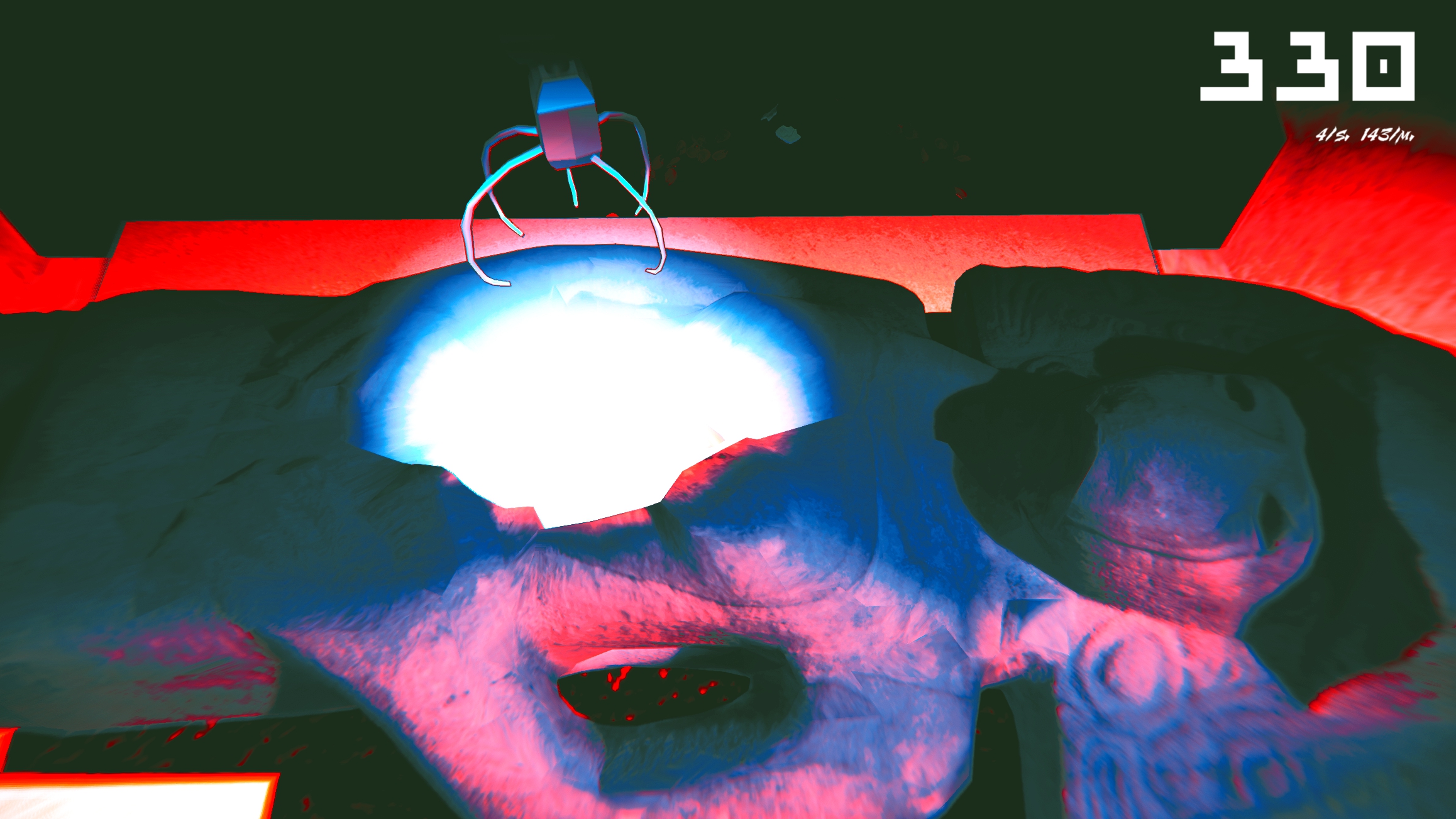
“I think there’s a mindset of students a lot of the time that they need specific instruction in something, that they need a lesson in every single thing, and that’s ultimately not how the world is going to work, where they’ll have a class in which everything teaches them exactly what they need to do for a specific problem,” Morrow said. “Instead, we’re giving them the tools to understand how to find the answers and what the questions are to be able to solve in terms of development. Really figuring out how to be resourceful, and solve problems continually. Just because when you make games, you’re going to encounter all sorts of novel problems. Every project you work on is going to be different, and it’s going to have new problems.”
If you like what we do here at Uppercut, consider supporting us on Patreon. Supporters at the $5+ tiers get access to written content early.






15 thoughts on “How Students Are Making Games Based Off The Weird Game Ideas Bot”